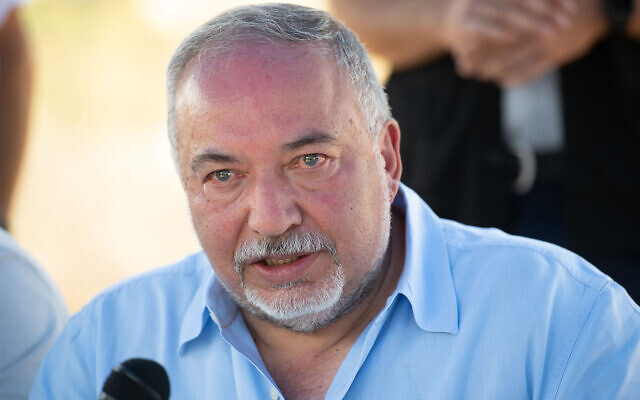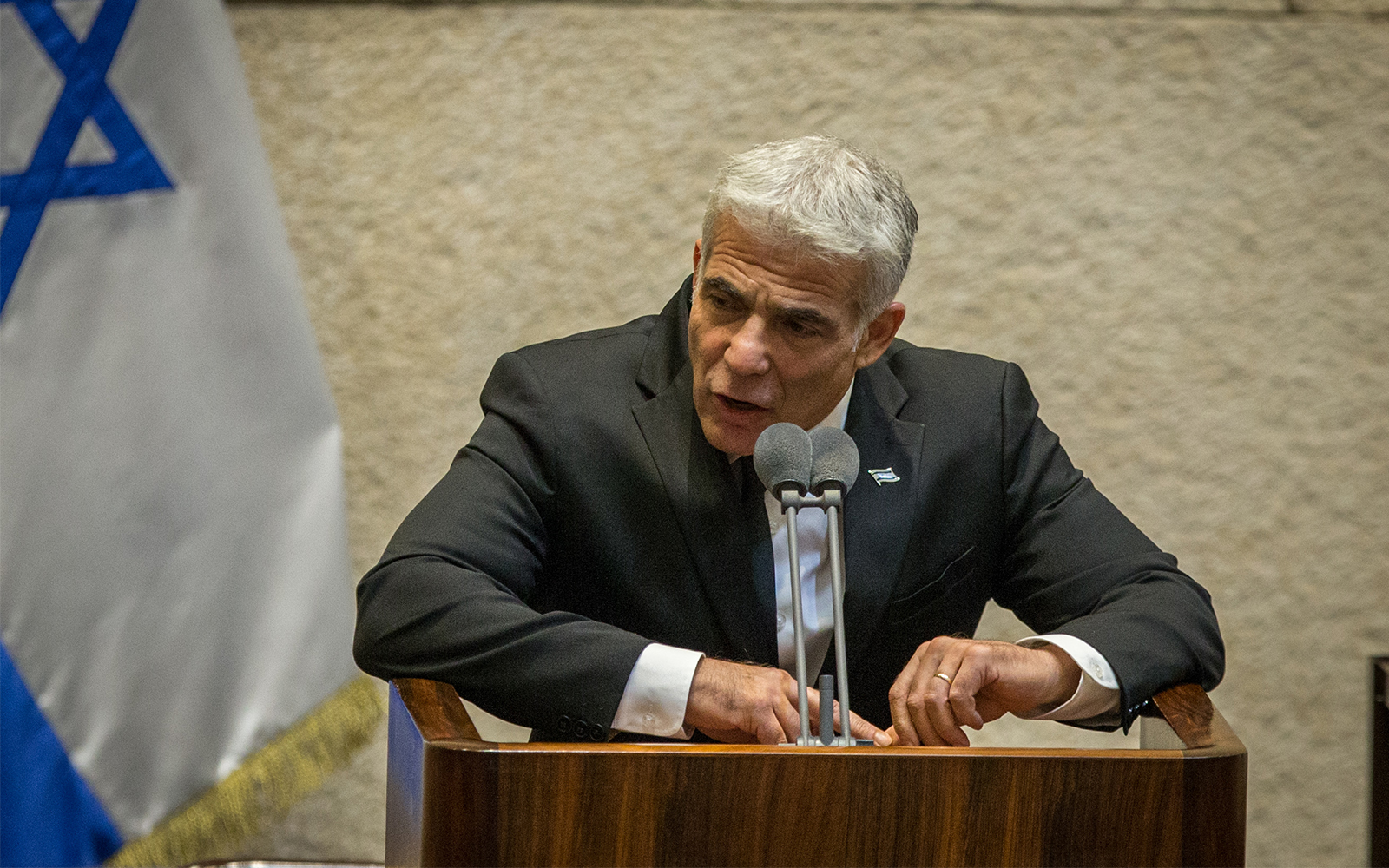Yisrael Beytenu party head reportedly calls on other opposition leaders to unite against Likud in possible election; polls predict bloc would still fall short of Knesset majority

MK Avigdor Liberman, the leader of the Yisrael Beytenu party, has called on other leading opposition politicians to form a new bloc to oppose Prime Minister Benjamin Netanyahu’s Likud party in the next round of elections, according to Wednesday reports.
Liberman made the offer to opposition leader Yair Lapid of the Yesh Atid party, Yamina party chief Naftali Bennett and Gideon Sa’ar, who recently broke from Likud to establish the New Hope party, according to reports from the Ynet news site and Kan public broadcaster.
The bloc would aim to challenge Netanyahu’s Likud party and its longtime ultra-Orthodox allies in possible elections, which appear likely to happen in the spring. The alliance would need to bridge significant gaps between the parties, and would still fall short of the parliamentary majority needed to form a governing coalition, according to recent polling.
Liberman made the proposal in a letter to the three other party chiefs, Ynet said.
Liberman did not call for the other parties to run under his Yisrael Beytenu faction, but proposed setting up a “mechanism” for choosing who would lead the bloc and the order of a potential list for Knesset representatives, the reports said.
Liberman acknowledged disputes between the parties, but said they should announce a united front, agree on several core principles and then hash out disagreements later.

All four of the party leaders bitterly oppose Netanyahu, but a joint platform would be forced to accommodate the center-left Yesh Atid, right-wing and secular Yisrael Beytenu, national-religious Yamina and center-right New Hope.
None of the party leaders have commented on the reports, which first emerged shortly after midnight on Wednesday and said Liberman would publicly push for the plan during the day. The reports did not mention Defense Minister Benny Gantz’s centrist Blue and White faction.
If they can reconcile their differences, the alliance would still fall short of a parliamentary majority, according to the latest poll.
Results from the survey released by Channel 12 on Tuesday, before the reports of Liberman’s proposal, said the parties in the bloc would win 54 seats — seven short of the 61 seats needed to form a ruling coalition in the 120-seat Knesset. Even with the Blue and White party, the bloc would only secure 60 seats, according to the poll.
The poll predicted 27 seats for Likud, 21 for Sa’ar’s New Hope, 14 for Yesh Atid-Telem, 13 for Yamina, 11 for the Joint List, 8 each for the Haredi Shas and United Torah Judaism parties, and 6 each for Blue and White, Yisrael Beytenu and Meretz.
A possible right-wing and religious bloc of Likud, Yamina, Shas and UTJ would only make up 56 seats, suggesting that the path to a coalition will be difficult in any case.
Sa’ar announced his party only last week, but early polls have showed it will likely be popular with voters.

Tuesday’s Channel 12 poll was conducted before the popular, renegade Likud MK Yifat Shasha-Biton said she will join New Hope. If the highly sought after ex-IDF chief Gadi Eisenkot joined Sa’ar’s party, it would only receive one extra seat, the poll indicated.
Polls, especially so far out from an election, should be taken with a heavy grain of salt, but taken together the surveys can serve as a general gauge of the political climate and where the vote may be headed.
If elections are called, the fourth in under two years, they will likely be held in March.
Likud and its coalition partner Blue and White have largely been at odds since the government was formed in May.
A bill to dissolve the Knesset and trigger early elections has cleared its preliminary reading and requires three more Knesset votes to be enacted. Lawmakers will not vote on it this week after a successful filibuster by Likud on Tuesday pushed back a vote on the legislation, which will have to wait until next week.
Likud lawmakers say they were interested in delaying the vote to dissolve parliament for last-minute negotiations with Blue and White to prevent an election. But Netanyahu’s party is widely reported to be demanding that Gantz give up on the clause in their coalition agreement that allows him to replace Netanyahu as premier next November — a demand Gantz is unlikely to accept.
Likud has held up the passing of a 2021 budget — the lone loophole in the coalition agreement that would prevent Gantz from becoming prime minister — in what has brought Blue and White to support the Knesset-dissolving legislation.
Regardless of whether or not the legislation is approved, the Knesset will disperse and elections will be called for 90 days later (March 16) if a budget is not passed by next Wednesday.
As reported by The Times of Israel
